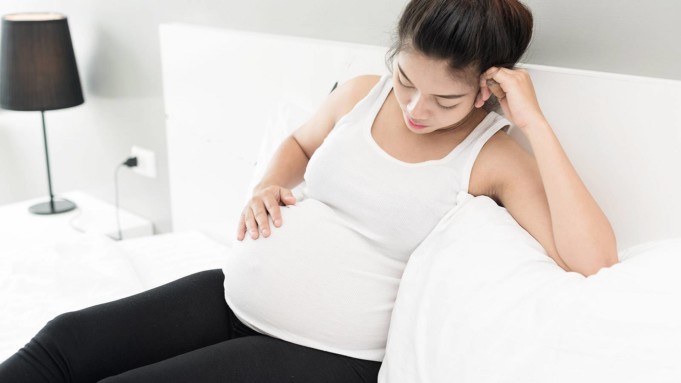Pregnant women usually experience shortness of breath during their first few weeks of pregnancy. This is usually attributed to the increase of a hormone called progesterone.
This hormone causes pregnant women to breathe more often than usual. It can look like shortness of breath. This hormone enlarges your lungs and permits your blood to carry large volumes of oxygen to your baby. Shortness of breath and breathlessness can be used interchangeably.
However, while shortness of breath is always regarded as common symptom of pregnancy, it is always difficult for a medical practitioner to detect the exact cause of it. Shortness of breath during pregnancy occurs due to several factors ranging from growing of uterus to changes in the demand on the heart.
Things to do when experiencing shortness of breath during pregnancy
Shortness of breath is certainly what every woman will experience and there is always no way to avoid this condition but there are simply little things to do that will assist in easing it a bit.
- Sleep propped up on your left side. This way of sleeping is considered as the best way to sleep as it aids blood circulation.
- Always stand erect. This provides a better platform for the lungs to do its job.
- You can as well continue with your daily normal activities and keep on exercising your body during pregnancy. Always pay attention to bodily movement and never do more than what you should do. Pushing yourself too hard may bring you serious consequences.
- Always take it easy on yourself.
When do you call the attention of your doctor?
It is always advisable to call the attention of your doctor whenever you are faced with challenges in breathing, either shortness of breath or breathlessness.
As the break down in breathing during pregnancy can sometimes be caused by the sickle cell anemia which is due to the reduction of oxygen carrying the red blood cells, your doctor may also likely check your iron levels.
If you are experiencing difficulties in breathing and your lips or fingertips are turning bluish in colour you should also consult your doctor as soon as possible. If you are having symptoms of chest pain or you know you an asthmatic patient, you should also not hesitate to contact your doctor.
Is short breath a common phenomenon during pregnancy?
Having short breath is a common thing to experience during pregnancy like we said earlier. It usually takes place after the first few weeks of pregnancy. Research indicates that about three quarters of pregnant women who have never felt breathlessness before, experience short breath somewhere along the line of pregnancy.
During your second or first trimester you may begin to experience shortness of breath.
If you are expecting a twin or during the course of the pregnancy, have gained some more weight, you will definitely experience short breath or breathlessness. It sometimes might look frightening or fearful at first instance but after a while you will get used to it.
Why breathlessness is attributed to pregnancy

Natural processes occur in order to get your body adapted to carrying your baby takes place during pregnancy. This natural processes or changes usually causes short breath during pregnancy.
During the early stages of pregnancy, your body will become bigger and sometimes you might find it really difficult to fit into the clothes you were wearing before the pregnancy. This is as a result of your ribcage moving upward and outwards during pregnancy to give you a greater lung capacity.
Progesterone which is also known as the pregnancy hormone mentioned above, enables your body to absorb oxygen into your blood streams through the lungs. This makes your body more sensitive to the levels of carbon dioxide you exhale.
These changes show your body does better in processing oxygen O2 and carbon dioxide Co2. You’re breathing in a different way from the way you did before you delivered, but very much deeper each time which may make you experience a bit shortness of breath than the others.
As you approach the end of your trimester, the size of your baby may also cause you to experience shortness of breath. But usually at this point your womb begins to push upwards on the sheet of muscles that lies behind ribcage or diaphragm which then presses on your lungs.
Even if you have not experience short breath or breathlessness before, you may experience it here especially if you are carrying your baby high. Though you might not enjoy shortness of breath or breathlessness as you climb the stairs never get bothered about it as this type of breathlessness is normal and without any harm.
The Length of shortness of breath during pregnancy
According to research, if you are having your first pregnancy your baby would drop on your pelvis from about 36 weeks. This is actually when your breathlessness will end. But in a situation where you have had a baby before, your baby might engage until the end of your pregnancy.
But if you still have some time to go, you may try some light exercise. A little and gentle exercise can help you lessen the chances of having short breath as being unfit increases the possibility of having short breath.
As u constantly work out your baby would get a lot of oxygen because of the changes your body has undergone as a result of the pregnancy.
After delivering your baby, your levels of the hormone progesterone plummet, which will speedily relief the pressure from your nostrils and womb.
It is worthy of note that it may take some time for the changes in your ribcage and breathing system to return to the way it used to be before the pregnancy.
Impacts of short breath on the baby
However, there are no known or possible negative impacts of short breath on the baby to be born. As long as you have no symptoms arising from any kind of sickness, short breath is a normal phenomenon that occurs during pregnancy.
Even if it does not feel like it, you are actually breathing deeply and very efficiently. And so, your baby gets the oxygenated blood he needs. So short breath during pregnancy does not affect your unborn child.
Conclusion
Conclusively, shortness of breath(breathlessness) is a natural thing that can happen to a pregnant woman. But if you have any underlying condition and short breath takes place, please see your doctor immediately because this can cause harm to you or your baby.
Sources:
- Shortness of breath; marchofdimes.org
- Shortness of breath in pregnancy; babycenter.com












